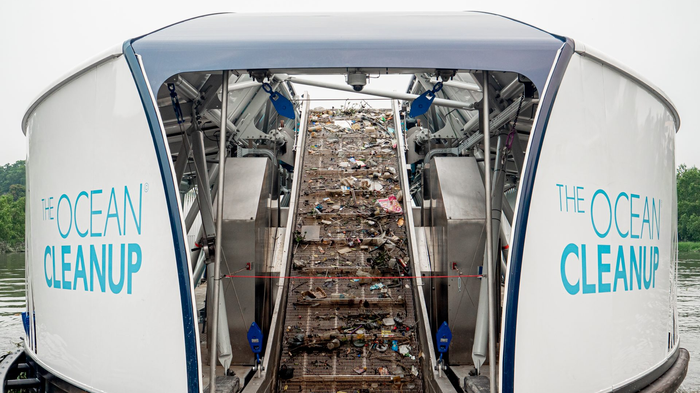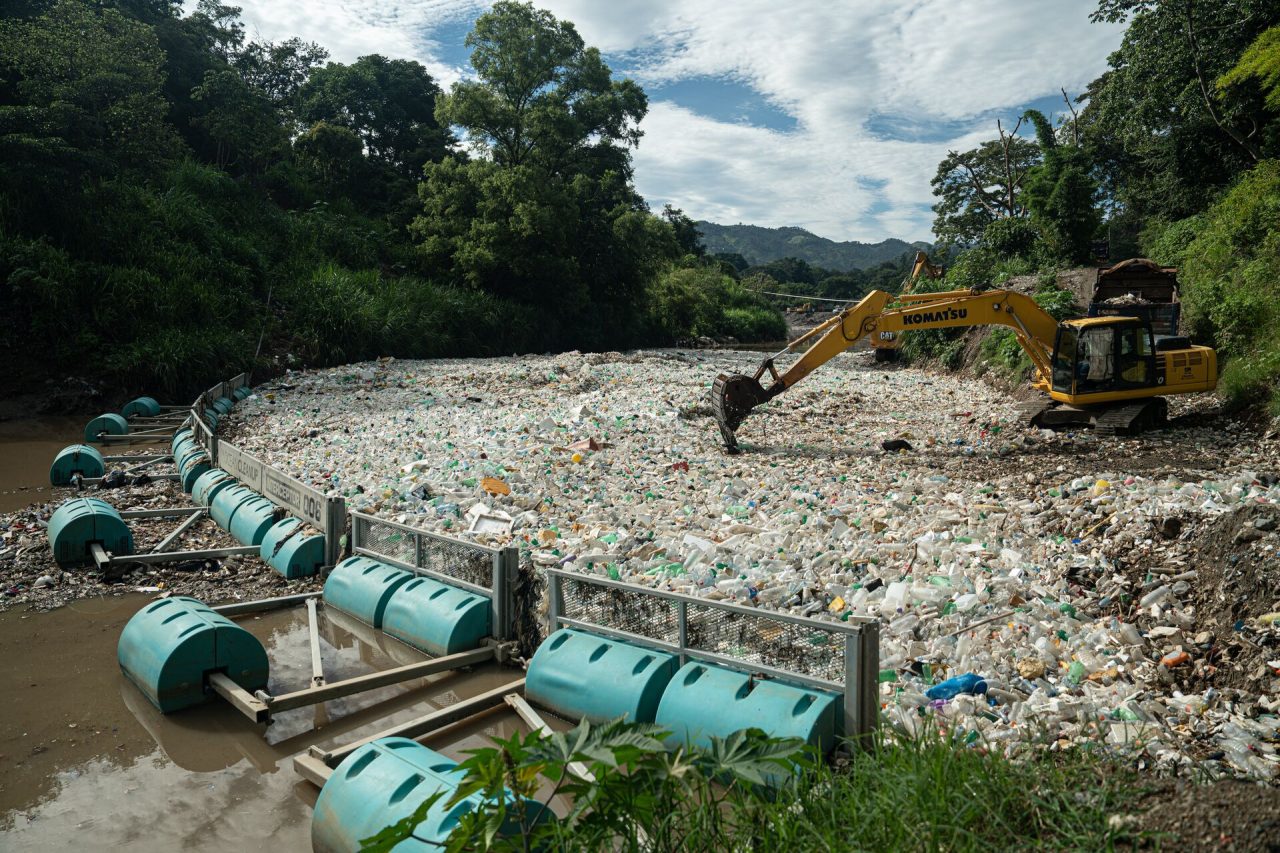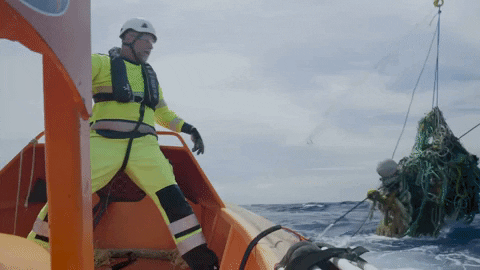
The Ocean Cleanup Wins $1M Award from Benioff Ocean Initative to Combat River Plastic Waste in Jamaica
Back to pressFunding will support the deployment of The Ocean Cleanup’s Interceptor at Kingston Harbour, Jamaica in a multi-year project – using advanced technology to close the tap and drive behavioral change in collaboration with Recycling Partners of Jamaica
Rotterdam, the Netherlands – 7 May, 2020 – The Ocean Cleanup, the Dutch non-profit organization developing advanced technologies to rid the world’s oceans of plastic, today announced it has been awarded $1M USD by the Benioff Ocean Initiative to stop plastic from reaching the ocean at Sandy Gully in the heart of Kingston Harbour, Jamaica.
The highly visible location, which is vital to Jamaica’s international tourism industry, will reaffirm the country’s strong commitment to protecting the environment and arm it with new capabilities to address the challenge. The project will be one of the first river projects The Ocean Cleanup is undertaking while scaling up to tackle the 1000 heaviest polluting rivers in the world. The project is expected to be initiated at the beginning of 2021.
The award to The Ocean Cleanup is one of nine granted by the Benioff Ocean Initiative, in a partnership with The Coca-Cola Foundation. Per research conducted by The Ocean Cleanup, Hunts Bay is Jamaica’s most polluted waterway, responsible for an estimated 578,000 kg of plastic flowing into the ocean each year, which equates to roughly the weight of 80 African elephants.
“To clean the world’s oceans, it is important, but not enough to collect plastic debris that has accumulated in the ocean; we must also stop new plastic from reaching the ocean” said Boyan Slat, Founder and CEO of The Ocean Cleanup. “We are grateful to the Benioff Ocean Initiative and The Coca-Cola Foundation for their support and for recognizing the key importance of addressing rivers in solving ocean plastic pollution.”
In Collaboration with the Recycling Partners of Jamaica
For this project, The Ocean Cleanup will collaborate with the Recycling Partners of Jamaica (RPJ) to deploy an Interceptor, its scalable and solar-powered solution that is capable of capturing 50,000 kg of trash per day. RPJ will operate the Interceptor and ensure the environmentally sound disposal of all collected plastics and materials. Key national focus will also be placed on a robust communication and community education program that will encourage proper waste disposal and active recycling cultures. Additional funding to maintain the project will be secured through other partners.
“Jamaica’s rivers and oceans are intrinsic to our landscape and livelihoods”, said Nalini Sooklal, General Manager of RPJ. “By deploying an Interceptor from The Ocean Cleanup, we will remove a tremendous amount of garbage from Kingston Harbour before it has a chance to wash into the ocean, and at the same time greatly increase awareness of our efforts, further motivate our people to adopt new behaviors. We wish to thank The Ocean Cleanup and the Benioff Ocean Initiative for this opportunity to positively impact vital resources and our community.”
A Global Effort
The project is part of The Ocean Cleanup’s ambition to stop plastic pollution at the source by tackling the 1000 heaviest-contributing rivers in the world. The Ocean Cleanup currently has Interceptors online in Jakarta (Indonesia) and Klang (Malaysia), and will soon start installation in Santo Domingo (Dominican Republic). Prior to Jamaica, Interceptor scale-up projects were announced for Vietnam, Thailand, and Los Angeles County (USA).
As part of The Ocean Cleanup’s research to map the problem, it was established that 1,000 of the world’s 100,000 rivers (1%) are responsible for roughly 80 percent of the garbage entering the oceans. The product of their global scientific measurement and modeling efforts has been visualized in an interactive map that is accessible here.
###
PRESS CONTACTS
CFF Communications, Amsterdam
Eline Weltevreede
E: press@theoceancleanup.com
T: +31 20 575 40 10
U.S. Media Representative, San Francisco
Alan Dunton
E: adunton@shiftcomm.com
T: +1 415-290-8219
MEDIA ASSETS
Photos, illustrations, videos on The Ocean Cleanup from the general media gallery.
ABOUT THE OCEAN CLEANUP
The Ocean Cleanup is a Dutch non-profit organization that develops advanced technologies to rid the world’s oceans of plastic. Founded in 2013 by Boyan Slat, The Ocean Cleanup conducts global research, builds scalable cleaning systems for oceans and rivers, and now employs approximately 95 engineers and researchers. The foundation is headquartered in Rotterdam, the Netherlands.
Complementary to its approach to solve the legacy problem of plastic in the ocean garbage patches by means of its passive floating waste collection systems, the organization developed the Interceptor technology to help prevent plastic garbage from entering the oceans via rivers. Interceptors are now deployed in Jakarta, Indonesia and Klang, Malaysia, with preparations ongoing for further deployments around the world.
For more information, please visit: theoceancleanup.com
ABOUT BENIOFF OCEAN INITIATIVE
Benioff Ocean Initiative, based at UC Santa Barbara’s Marine Science Institute, merges science and technology to improve ocean health. The initiative was brought to life in 2016 through a $10 million gift from Marc and Lynne Benioff to promote science-based ocean problem-solving at UC Santa Barbara. For more information about the Benioff Ocean Initiative, please visit the website.
ABOUT RECYCLING PARTNERS OF JAMAICA
RPJ envisions the development and maintenance of a sustainable plastic recycling system within an engaged Jamaica. To this end RPJ’s primary mission is to develop and support the recycling industry by providing and maintaining adequate infrastructure; increasing employment through entrepreneurship and engaging the public, private and governmental sectors in sustained best practices for waste management.
RPJ is the designated national recycling entity by the Government of Jamaica with the mandate to remove plastic bottles from the environment by engaging the public, businesses, and schools to divert plastic from landfills.

